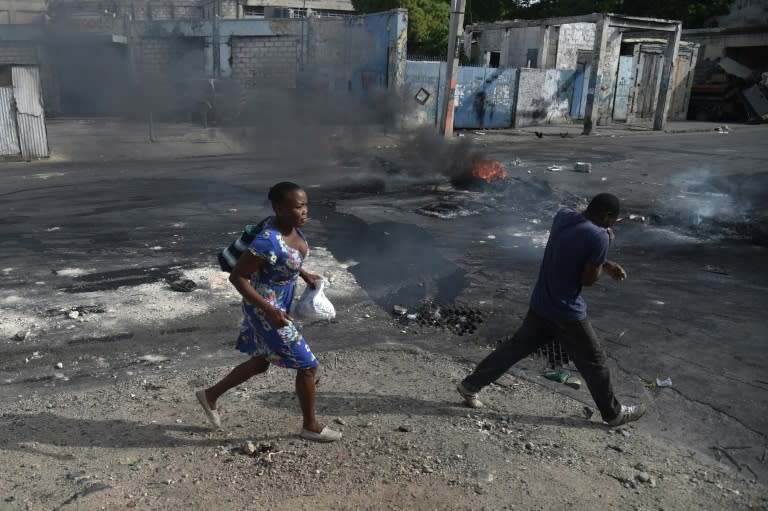Haiti gripped by tension as president stays out of sight
A general strike shut down most of Haiti Wednesday as tension and uncertainty gripped the Caribbean country following deadly protests over the weekend and the president's unexplained absence from public. Schools, shops and private businesses were closed in the main cities, heeding the opposition call for a general strike in the country, which is the poorest in the Americas and still battling to overcome a years-old cholera epidemic and the aftermath of a major earthquake. As police patrolled otherwise empty main avenues in normally chaotic Port-au-Prince, burning barricades went up in some neighborhoods and sporadic gun shots set residents on edge. "It's only when the streets are empty that politicians begin to see that there is a problem," lamented Alix Bernardin, 27, a resident of the capital. "Too much blood has flowed in the country. Jovenal has to go," he said, referring to President Jovenel Moise. At least three people were killed by gunfire during mass protests over the weekend demanding Moise's resignation, the national police said. The opposition said 11 people lost their lives. Moise has said nothing since Sunday's protests. He was supposed to speak to the nation Tuesday in a televised address but it was dropped several hours after being announced, with no explanation given. "We had technical failures," Emmanuel Jean-Francois, an advisor to the president, said Wednesday after being reached by telephone. "We are taking all measures to broadcast it this morning," he added, declining to give a time or say what it would be about. In any case, said Haitian resident Jean Junior, 30, the president only makes "promises that he doesn't keep" while the people lack "potable water, hospitals, housing." "We can no longer live like this, frustrated, because we know how people live in other countries," Junior said. - Desperate for fuel - National police spokesman Gary Desrosiers said the force was braced for the aftermath of the protests. "We remain on the ground to assure everyone's protection," he told AFP. In the upscale Petionville neighborhood, the only two gas stations open were besieged by motorcycle taxi drivers desperate to refuel. The breakdown in presidential communications was widely criticized on social media. Many refused to believe the delay was caused by technical problems, and others criticized the incompetence of the presidential services. On Monday, the presidency released only a brief statement with a picture of Moise and Prime Minister Jean-Henry Ceant, surrounded by the heads of both chambers of parliament and the president of the supreme court of appeals. The statement said the meeting had three objectives: "that the executive pursue dialogue with all sectors of national life, resolve problems linked to insecurity, and intensify programs of social relief." Various opposition groups, arguing that the situation is out of control, have proposed ways to remove the president in order to resolve the crisis. The protests were part of a sporadic movement that began during the summer over a scandal at the heart of a Venezuelan aid program known as Petrocaribe. Through Petrocaribe, Venezuela for years supplied Haiti and other Caribbean and Central American countries with oil at cut-rate prices and on easy credit terms. But investigations by the Haitian Senate in 2016 and 2017 concluded that nearly $2 billion from the program were misused. A dozen of Haiti's former cabinet ministers -- all members of the current ruling party -- have been implicated but no legal proceedings have followed, sparking public anger. Moise is seen as blocking any court action over the scandal.





